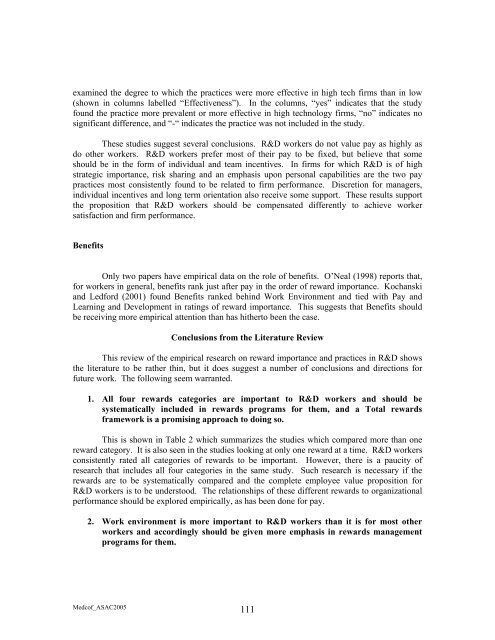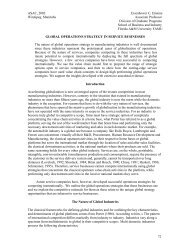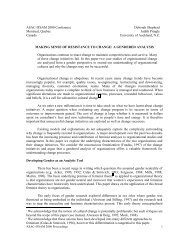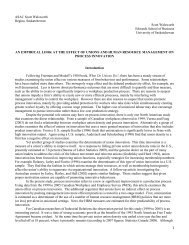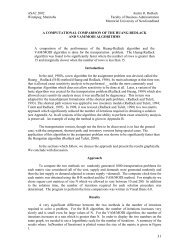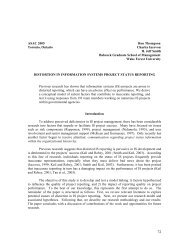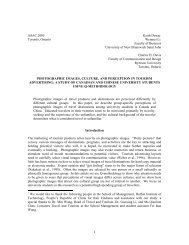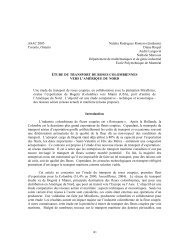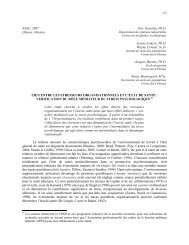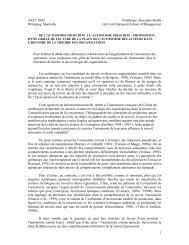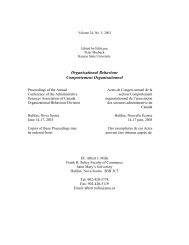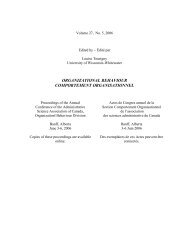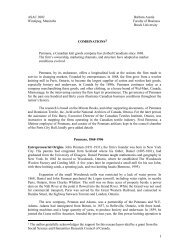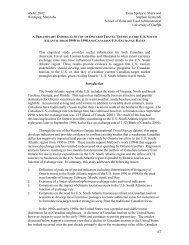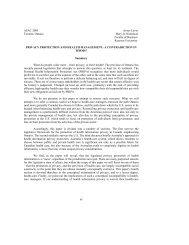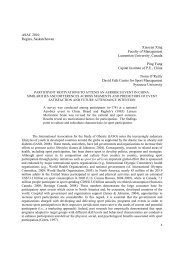104 TOTAL REWARDS FOR TECHNICAL WORKERS
104 TOTAL REWARDS FOR TECHNICAL WORKERS
104 TOTAL REWARDS FOR TECHNICAL WORKERS
Create successful ePaper yourself
Turn your PDF publications into a flip-book with our unique Google optimized e-Paper software.
examined the degree to which the practices were more effective in high tech firms than in low<br />
(shown in columns labelled “Effectiveness”). In the columns, “yes” indicates that the study<br />
found the practice more prevalent or more effective in high technology firms, “no” indicates no<br />
significant difference, and “-“ indicates the practice was not included in the study.<br />
These studies suggest several conclusions. R&D workers do not value pay as highly as<br />
do other workers. R&D workers prefer most of their pay to be fixed, but believe that some<br />
should be in the form of individual and team incentives. In firms for which R&D is of high<br />
strategic importance, risk sharing and an emphasis upon personal capabilities are the two pay<br />
practices most consistently found to be related to firm performance. Discretion for managers,<br />
individual incentives and long term orientation also receive some support. These results support<br />
the proposition that R&D workers should be compensated differently to achieve worker<br />
satisfaction and firm performance.<br />
Benefits<br />
Only two papers have empirical data on the role of benefits. O’Neal (1998) reports that,<br />
for workers in general, benefits rank just after pay in the order of reward importance. Kochanski<br />
and Ledford (2001) found Benefits ranked behind Work Environment and tied with Pay and<br />
Learning and Development in ratings of reward importance. This suggests that Benefits should<br />
be receiving more empirical attention than has hitherto been the case.<br />
Conclusions from the Literature Review<br />
This review of the empirical research on reward importance and practices in R&D shows<br />
the literature to be rather thin, but it does suggest a number of conclusions and directions for<br />
future work. The following seem warranted.<br />
1. All four rewards categories are important to R&D workers and should be<br />
systematically included in rewards programs for them, and a Total rewards<br />
framework is a promising approach to doing so.<br />
This is shown in Table 2 which summarizes the studies which compared more than one<br />
reward category. It is also seen in the studies looking at only one reward at a time. R&D workers<br />
consistently rated all categories of rewards to be important. However, there is a paucity of<br />
research that includes all four categories in the same study. Such research is necessary if the<br />
rewards are to be systematically compared and the complete employee value proposition for<br />
R&D workers is to be understood. The relationships of these different rewards to organizational<br />
performance should be explored empirically, as has been done for pay.<br />
2. Work environment is more important to R&D workers than it is for most other<br />
workers and accordingly should be given more emphasis in rewards management<br />
programs for them.<br />
Medcof_ASAC2005<br />
111


